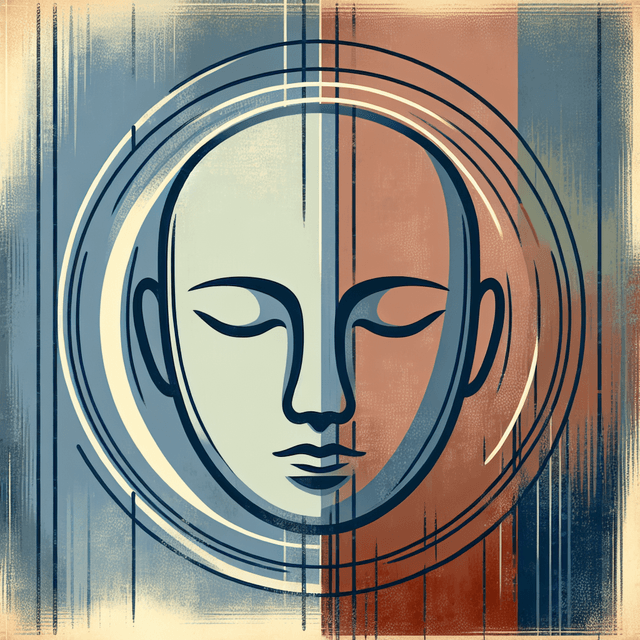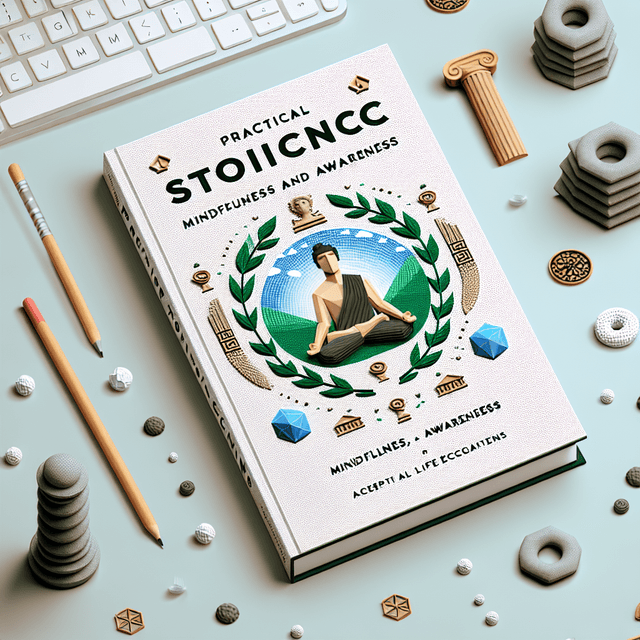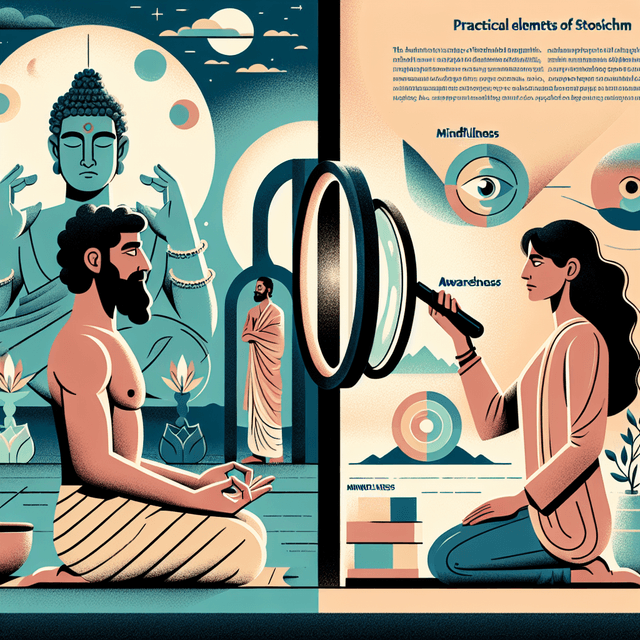Mindfulness And Awareness
10 December 2023
Understanding Stoic Mindfulness
Stoicism teaches the importance of being present in the here and now, and this concept aligns closely with the practice of mindfulness. By cultivating an awareness of our thoughts, emotions, and surroundings, we can achieve greater clarity and resilience. Stoic mindfulness encourages individuals to observe their inner dialogues without judgment, recognizing that external events are beyond their control. This self-awareness fosters a sense of calm and stability even amidst chaos, making it a valuable tool for navigating life's challenges.
Applying Stoic Principles in Daily Life
Incorporating mindfulness into our daily routines can significantly enhance our ability to respond thoughtfully rather than react impulsively. Stoic practices such as negative visualization and premeditatio malorum (preparation for adversity) align with the mindfulness concept of acknowledging and accepting both positive and negative experiences without attachment. By integrating these principles, individuals can develop a more balanced perspective, cultivate gratitude, and build emotional resilience in the face of setbacks.

Every moment think steadily as a Roman and a man to do what thou hast in hand with perfect and simple dignity, and feeling of affection, and freedom, and justice; and to give thyself relief from all other thoughts.
- Marcus Aurelius
Embracing the Power of Attention
Stoic mindfulness underscores the significance of directing our attention purposefully. This involves focusing on what is within our sphere of control while relinquishing fixation on external circumstances. The Stoics believed that by honing our attention, we can alleviate unnecessary suffering and uncover a greater sense of peace. Practicing mindfulness in this manner empowers individuals to disengage from distressing thoughts and redirect their focus towards constructive actions, fostering a sense of agency and inner tranquility.
Cultivating Equanimity
Stoic mindfulness emphasizes the pursuit of equanimity, the capacity to remain undisturbed by external events. By integrating this principle, individuals can become less reactive to life's fluctuations, thereby fostering emotional stability and resilience. This equanimity enables individuals to navigate adversity with composure, transcending the allure of momentary pleasures and anxieties. Through sustained practice, individuals can develop a steadfast inner calm that endures even in the face of external turmoil.

The Art of Introspection
Stoicism invites individuals to engage in reflective introspection, an essential component of mindfulness. This introspective practice enables individuals to scrutinize their thoughts and behaviors, fostering self-awareness and personal growth. By examining their reactions and impulses, individuals can cultivate greater emotional intelligence and make informed choices aligned with their values, thereby enhancing their overall well-being and resilience.
practical-stoicism
Incorporating Stoic Mindfulness into Modern Life
In today's fast-paced world, the incorporation of Stoic mindfulness principles can empower individuals to navigate uncertainty and adversity with greater grace and resilience. By integrating Stoic mindfulness into their daily lives, individuals can foster emotional well-being, enhance decision-making, and cultivate a sense of inner peace. Through intentional practice, individuals can harness the transformative power of Stoic mindfulness to lead more intentional and fulfilling lives.

Written by

Max writes is a online stoicism content writer. He is passionate about making stoicism accessible for everyone.